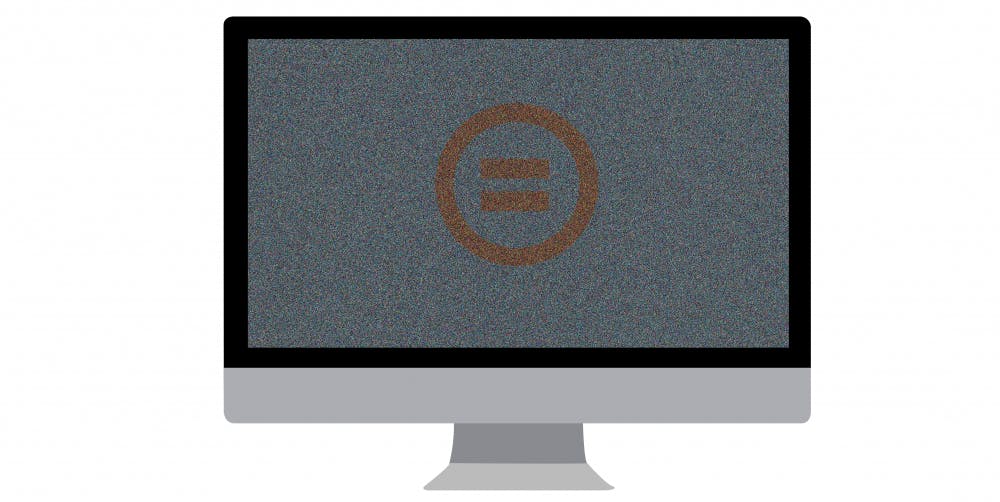Net neutrality is in danger, and some say a vote may change the free flow of online information in the next few months.
Current U.S. law requires internet service providers to treat all online content the same. The Federal Communications Commission voted in 2015 in favor of net neutrality, but lobbyists and newly appointed officials might be close to overturning the decision.
“Net neutrality is an umbrella term,” IU telecommunications professor Barbara Cherry said. “I consider it a little sloppy and not precisely defined. It’s a lot deeper than just neutral access to the internet — we need a series of detailed rules to counter all possible threats.”
The 2015 ruling, known as the Open Internet Order, classified ISPs as common carriers under Title II of the Communications Act of 1934.
This means companies like Comcast and Verizon can’t slow down or restrict certain websites for personal gain. They’re also subject to more regulations, from being required to treat all customers and content the same to charging reasonable rates for acceptable services.
“This Open Internet Order acts like an anti-discrimination act for cyberspace,” Julien Mailland, assistant telecommunications professor at IU, said. “If Comcast is classified this way, for example, they can’t slow down Netflix because they own the competitor Hulu.”
Cherry, Mailland and IU lecturer Rep. Matt Pierce, D-Bloomington, have been working on net neutrality research and issues together. Between them, they have visited Washington, D.C. for meetings and influenced policy decisions through their work.
“It is fun to bridge theory and practice,” Mailland said. “I was able to research it abstractly and have an effect in policymaking.”
Many people, including Mailland and Pierce, are projecting a vote in coming months to undo the Open Internet Order, which would be led by the Republican majority and deregulation-favoring FCC chair Ajit Pai.
If a vote passes, ISPs will revert to Title I status as information services, which can’t be regulated by the FCC nearly as much as if they remained under Title II.
Several major ISPs suggest they support laws that promote an open internet. But these companies also hire hundreds of lobbyists every time the laws appear to be changing in favor of more regulation.
“ISPs like AT&T know this is a popular topic,” Pierce said. “They want to create a bill that would look like net neutrality but does not have any real teeth to it.”
Furthermore, the FCC has caught many companies breaking the rules, regardless of how strict they are.
Over the years, AT&T has blocked Apple’s FaceTime app to get customers to pay for a shared data plan, Comcast tried shutting off access to file sharing clients like BitTorrent, and Verizon intercepted pro-choice text messages. The list doesn’t stop there.
Opponents of net neutrality argue that the intense competition among ISPs would act on its own as a regulatory buffer. Therefore, more rules aren’t necessary.
They also say the lengthy, confusing laws add waste and deter people from taking advantage of the free markets.
Cherry said her experience working for AT&T, Ameritech and even the FCC has given her an ability to look at the issue from many perspectives. From her work experience and research, she has concluded that implementing more laws to protect consumers is necessary.
“Companies who don’t want to be regulated will try to use lobbying, language and misclassifications to confuse people and fight more regulations,” Cherry said. “How do I know? It’s because I’ve worked for these companies.”
If pushing for more regulations to encourage more freedom sounds strange, Mailland agreed that it seems counterintuitive.
But Mailland said the true bipartisan solution lies in enforcing net neutrality — proponents of free market capitalism should support the notion of fair competition at the level of the application.
“We have seen this battle grow,” Mailland said. “And the trend has been going along exactly with the polarization of American politics.”
Regardless of where consumers stand on net neutrality, they can contact legislators with any concerns, especially with the anticipated vote looming closer. Congress oversees the budget and operations of the FCC, so its influence is key in this debate.
Mailland said part of what sparked the 2015 order came from angry citizens demanding action, so no concern is too small to voice.
“Net neutrality is a very complex topic,” Mailland said. “Stay as informed as you can, and do not just trust these giant corporations.”



